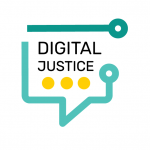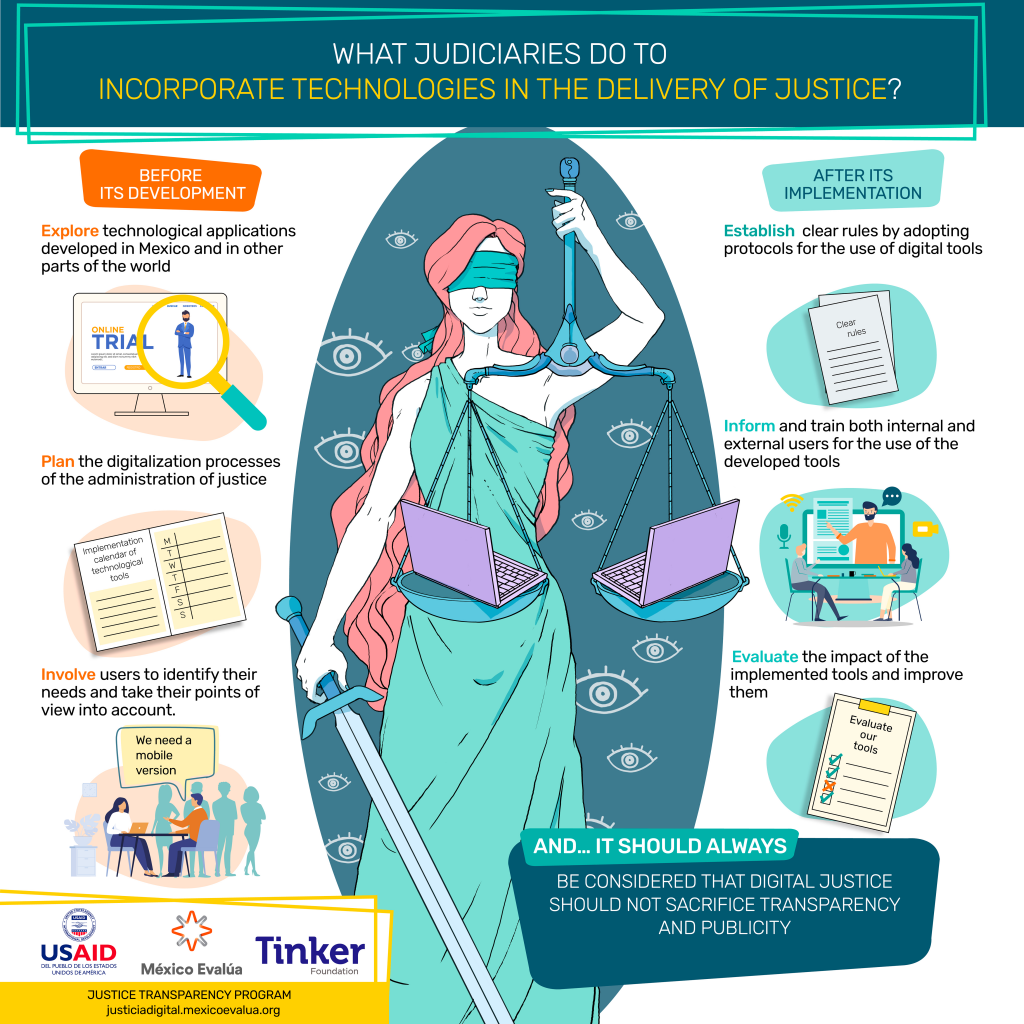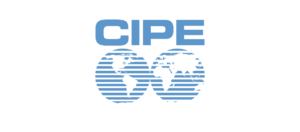Recommendations for the judiciaries

1.
1. Before implementing digital tools, it is important to:
a) Explore technological applications that are underdeveloped in Mexico, such as trials or courts completely online for the resolution of simple non-contentious processes or platforms that help users to represent themselves and avoid, when possible, the judicialization of their conflicts.
b) Plan the digitalization processes of the administration of justice. It is not about digitally replicating what was done on paper or in person, it is about thinking how to improve processes to make them more accessible to users.
c) Involve users in the process of developing technological tools to identify their needs and take into account their points of view.
2.
Once digital tools have been implemented, it is important to:
a) Establish clear rules by adopting protocols for the use of digital tools.
b) Inform and train both internal and external users for the use of the developed tools.
c) Take advantage of the context of the health contingency to overcome internal and external resistance.
d) Evaluate the impact of the implemented tools and improve them.
3.
At all times we must consider:
a) Digital justice must not sacrifice transparency and publicity.
b) The use of tools in the administration of justice must allow it to be more efficient without dehumanizing it.
This website has been created with the support of Tinker Foundation, United States Agency for International Development, Center for International Private Enterprise, and Friedrich Naumann Foundation for Freedom. The information presented on this page is not official information from the United States Government, and does not necessarily reflect the views or position of the aforementioned organizations. Its content is the exclusive responsibility of México Evalúa, Center for Public Policy Analysis.









